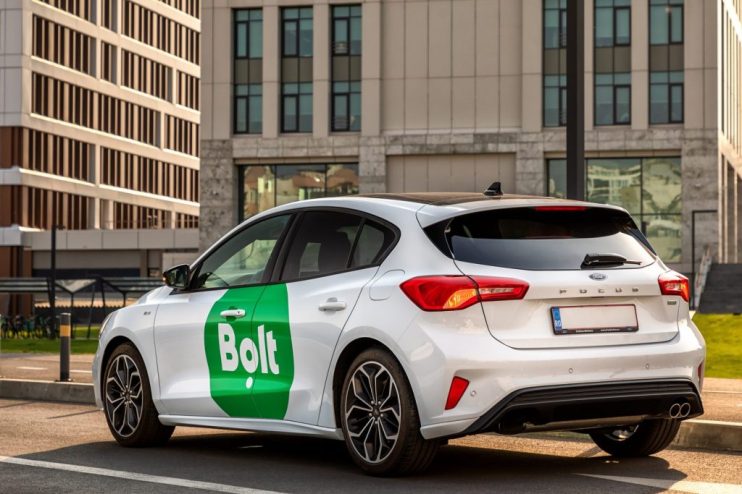Uber calls on rivals to offer employment benefits as Bolt faces trade union lawsuit

Uber has called on its rivals to give drivers employment benefits, after one of the UK’s biggest unions said it is taking legal action against ride-hailing app Bolt over its lack of workers’ protections.
Britain’s third largest trade union, GMB, is set to file legal proceedings against Bolt, in a bid to force the Estonian firm to give sick pay, pensions, and other benefits to its workers.
Following the news, Uber told City A.M. that rivals – such as Bolt – should follow in its footsteps, after the firm became the “only major ride-hailing platform in the UK to offer drivers benefits”.
“It is high time other operators followed suit, to ensure drivers have access to a pension and all other protections whichever platform they choose to drive on,” Uber said to City A.M.
Uber’s statement comes after GMB called on the ride-hailing app to abandon its “bogus self-employment model,” as it claimed the firm’s drivers are “being denied their workers’ rights”.
GMB said it will be lodging proceedings with a London Employment Tribunal, in a bid to win “guaranteed hours, sick pay, pensions contributions” and other benefits for Bolt’s drivers.
A Bolt spokesperson said “drivers across the UK” like its “existing model because it gives them the opportunity to earn more.”
The company spokesperson said “huge demand across the sector” means “all operators need to keep improving their offer to encourage drivers to use their platform.”
“Bolt has an open dialogue with the GMB and will continue to speak with them directly,” the spokesperson added.
Emily Bradshaw, a partner from Pattison Brewer – the law firm acting on behalf of GMB – called on gig economy employers to “recognise when their staff meet the legal definition of worker.”
Workers?
The case comes after Britain’s supreme court last year ruled that Uber must give its drivers 28 days paid holidays, sick pay, a maximum 48-hour week, and pay them the national minimum wage.
The landmark ruling paved the way for other gig economy workers to claim employment benefits, if they meet certain ‘tests,’ around pay and the extent to which they are controlled by their firms.
However, Daniel Parker, an employment lawyer at Winckworth Sherwood, explained that while “recent ‘gig economy’ decisions may have spurred on” GMB’s lawsuit, the Uber ruling does not guarantee Bolt’s driver’s will succeed in their case.
Parker said gig economy cases usually centre around the definition of a worker, in relation to questions over the “flexibility that individuals enjoy to organise and define their affairs” and the extent to which workers are “under a real degree of control”.
The employment lawyer added that “deciding whether someone is a worker or a self-employed contractor can be a very nuanced exercise.”
Notably, while workers at Pimlico Plumbers and taxi firm Addison Lee received recognition as workers after bringing forward legal challenges, the Court of Appeals last year ruled that Deliveroo drivers should not be classed as workers, due to the fact that riders can ask others to carry out a delivery for them.
The ambiguity has led to calls from unions, the Labour party, and the CEO of the Pensions Regulator, for greater clarity around the legal definition of the word worker
Nick Le Riche, a partner at BDB Pitmans said the UK’s cost-of-living crisis could accelerate the push for clarity “given the greater insecurity of working arrangements in the gig economy.”